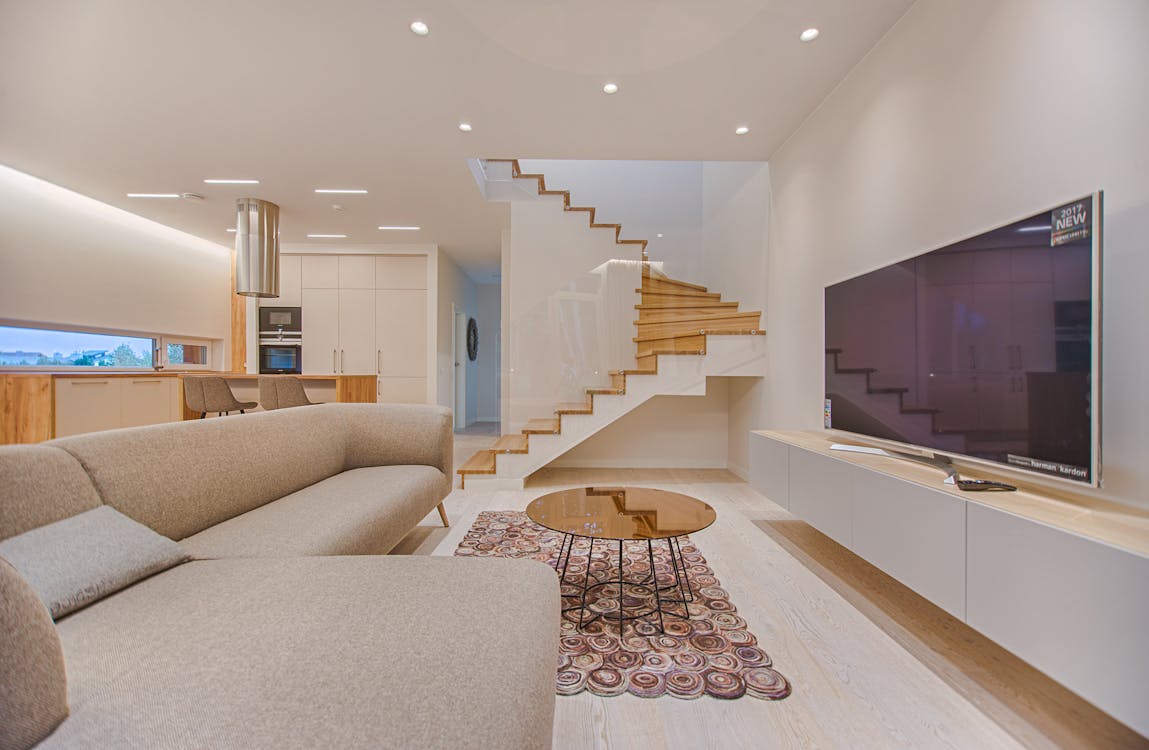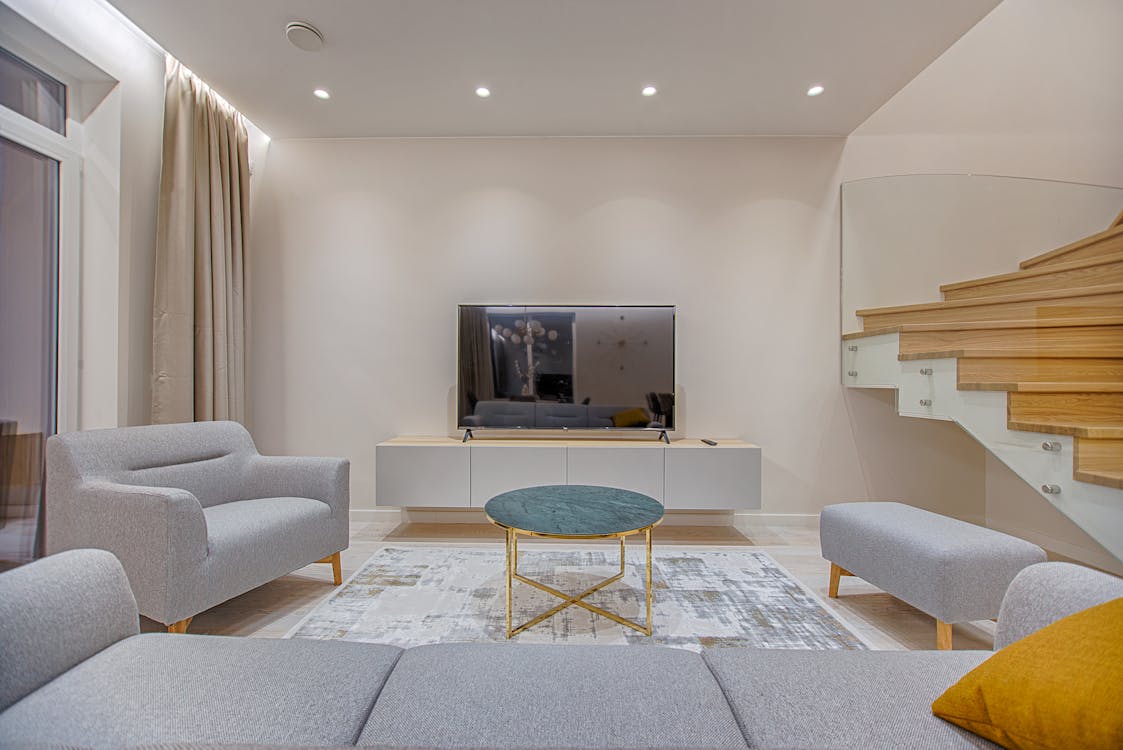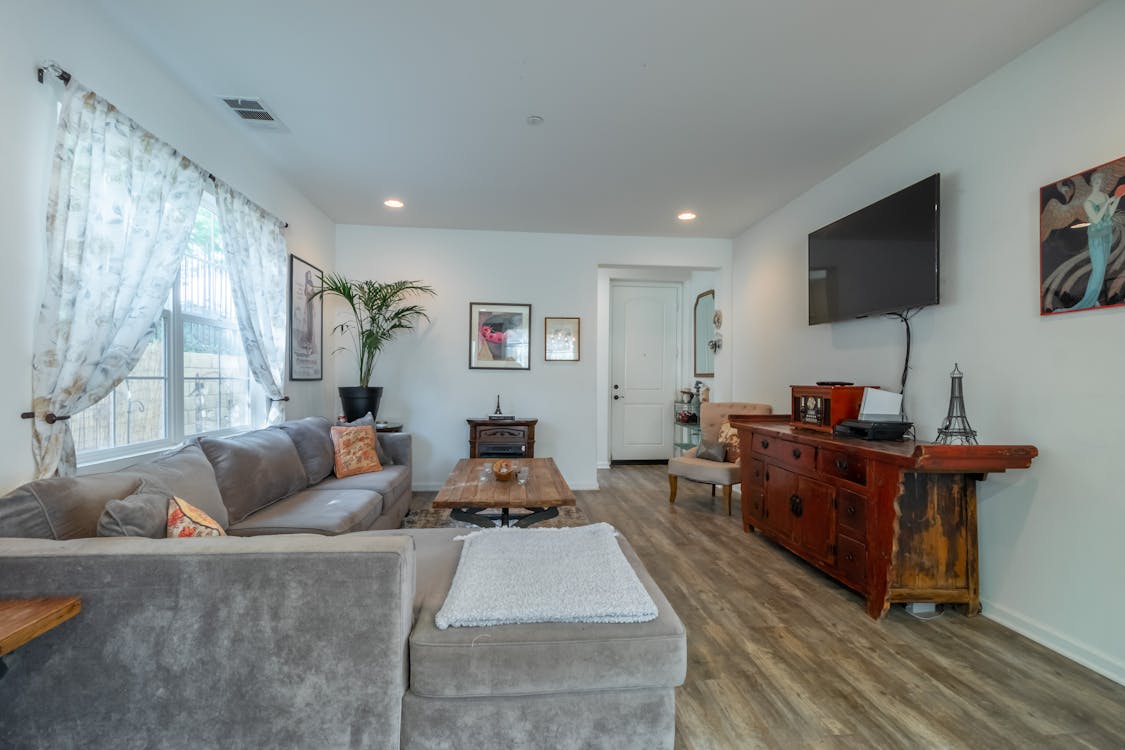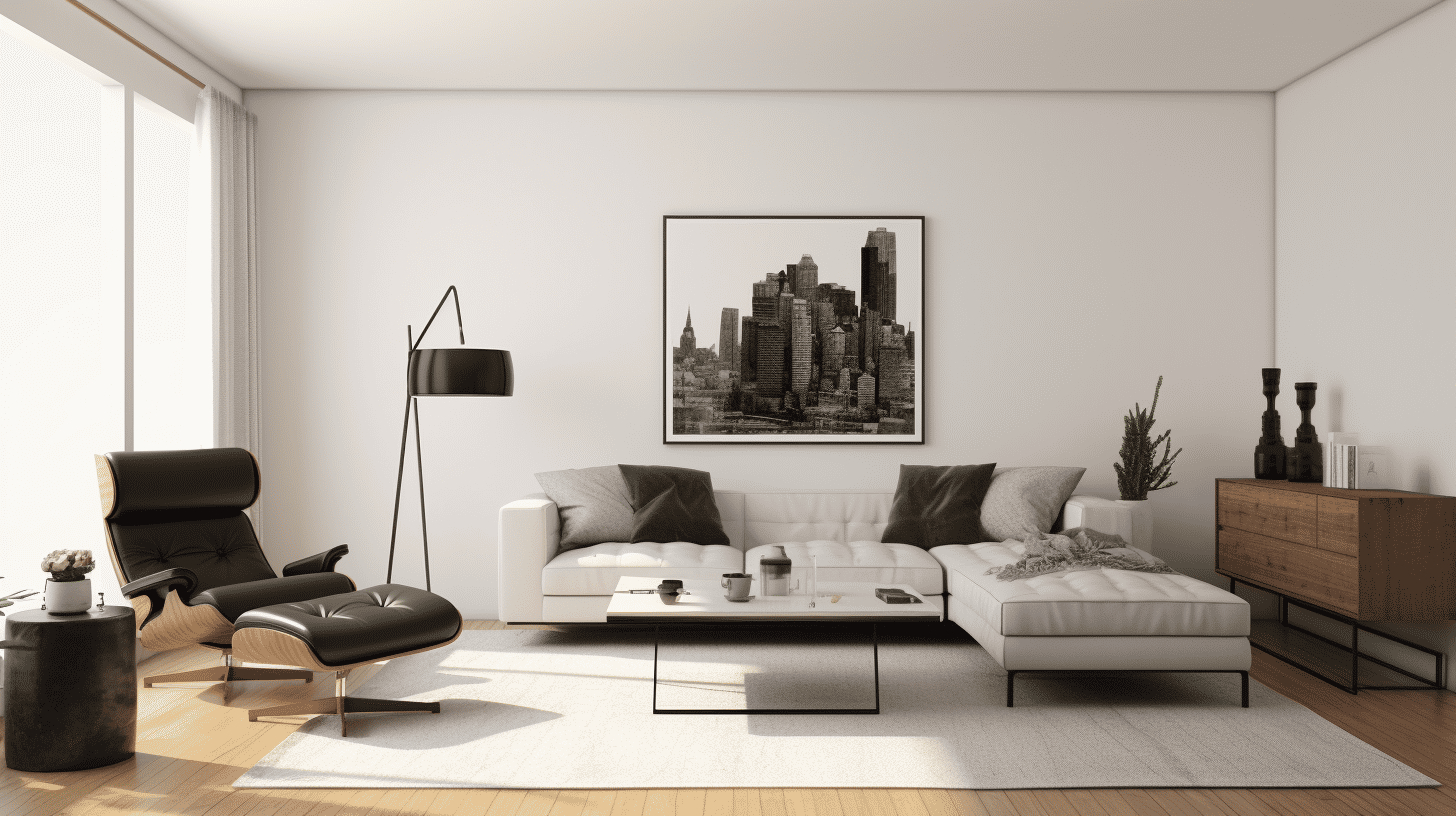Dealing with clutter can be quite overwhelming. From stacks of papers on the desk to overflowing closets and drawers, it’s easy for our living spaces to become cluttered and disorganized. However, maintaining a clutter-free home is not only visually pleasing but also has numerous benefits for our overall well-being and productivity. In this article, we’ll explore practical tips and insights on minimalist home maintenance for a clutter-free home, as well as the advantages of embracing a minimalist lifestyle.
Living in a clutter-free environment allows us to focus on what truly matters and create a peaceful and harmonious atmosphere in our homes. The minimalist movement has gained popularity in recent years, attracting millennials and individuals of all ages who are seeking simplicity and intentionality in their lives. By adopting minimalism, we can reduce stress, increase productivity, and create more space for the things that bring us joy.
In the following sections, we’ll dive deeper into the statistics on clutter and organization, explore the benefits of minimalist living, and provide practical tips for maintaining a clutter-free home. So, let’s embark on this journey to create a space that is both aesthetically pleasing and conducive to a happy and balanced life.
Tips for Minimalist Home Maintenance

Clutter seems to be an ever-present challenge in many of our lives. From struggling to find lost items to dealing with overflowing storage units, the impact of clutter can be significant. Let’s explore some eye-opening statistics on clutter and organization to gain a better understanding of this pervasive issue.
Time Spent Looking for Lost Items
Have you ever found yourself searching high and low for something you’ve misplaced? You’re not alone. According to the National Association of Professional Organizers, the average person spends one year of their life looking for lost items. That’s 365 days spent rummaging through drawers, checking under beds, and retracing steps in a quest to find misplaced belongings. It’s no wonder that many of us find ourselves feeling frustrated and stressed when we can’t locate what we need.
Spending on Nonessential Goods
Shopping can be a delightful pastime, but it can also contribute to clutter in our homes. A study conducted by Harris Interactive found that 23% of Americans spend $1.2 trillion annually on nonessential goods. This staggering figure shows just how much money is being allocated to purchasing items that may not be necessary. These impulse purchases can quickly add up and lead to an accumulation of belongings that we don’t truly need or use.
Growth of the Home-Organization Industry
As clutter becomes a prevalent concern for many individuals and families, the demand for home-organization solutions has skyrocketed. The home-organization industry is experiencing remarkable growth, with its worth increasing at a rate of 4% per year. In fact, this industry currently earns an impressive $16 billion in retail sales. From storage bins to space-saving organizers, it seems that people are actively seeking ways to declutter their lives and create more organized living spaces.
Storage Unit Usage
Sometimes, the challenge of clutter exceeds the capacity of our homes, leading to the utilization of storage units. A staggering 11.1% of U.S. households currently rent a storage unit. It’s remarkable to think that over 1 in 10 households relies on external storage to accommodate their belongings. What’s even more surprising is that 18% of storage unit renters have a four-bedroom home or larger. This statistic sheds light on the extent to which clutter can affect even those who live in sizable properties.
Impact of Clutter on Housework
Beyond the frustration of searching for lost belongings, clutter can also have a substantial impact on our daily chores. A study by the National Soap and Detergent Association reveals that removing clutter would eliminate 40% of housework in the average home. Think about it – by organizing our spaces and eliminating unnecessary items, we could significantly reduce the time and effort spent cleaning and tidying up. Clearing clutter not only creates a visually appealing environment but also makes maintaining a clean and tidy home much more manageable.
These statistics highlight the challenges posed by clutter and the importance of organization in our lives. From reclaiming lost time and money to creating more tranquil living spaces, it’s clear that addressing clutter is well worth the effort. So, let’s roll up our sleeves and make a concerted effort to declutter our lives, one item at a time.
Also Read : Designing a Minimalist Living Room : Simplicity and Serenity in 2024
Benefits of Minimalist Living

Living a minimalist lifestyle has become increasingly popular in recent years, with millennials in particular embracing the philosophy of decluttering and simplifying their lives. This movement towards minimalism goes beyond just reducing material possessions; it encompasses a mindset shift towards prioritizing what truly matters and finding contentment in simplicity.
Inspiring Millennials to Embrace Minimalism
Millennials, often burdened by student loan debt and faced with a challenging job market, have found a sense of freedom and liberation in embracing minimalism. Here are a few reasons why this generation has been drawn to the minimalist lifestyle:
- Financial Freedom: By cutting back on unnecessary expenses and reducing the accumulation of material possessions, millennials are able to save more money, pay off debts, and gain financial independence. This newfound financial freedom allows them to pursue their passions and live life on their own terms.
- Environmental Consciousness: The minimalist lifestyle aligns with the desire to reduce our ecological footprint. With a focus on owning less, millennials are more likely to choose sustainable, eco-friendly products and opt for experiences rather than material possessions. This commitment to environmental consciousness is driven by a desire to create a more sustainable future for themselves and future generations.
- Enhanced Well-being: Minimalism promotes a sense of mindfulness and intentionality. By decluttering their homes and lives, millennials find that they have more time and energy to focus on activities that bring them joy and fulfillment. This intentional living allows for greater mental clarity, reduced stress, and improved overall well-being.
Organizational Benefits
In addition to the personal benefits that minimalism brings, embracing a minimalist lifestyle can significantly improve your organizational skills and overall productivity. Here’s how:
- Clutter-Free Environments: Minimalism encourages you to declutter your physical spaces, resulting in a cleaner and more organized living environment. With fewer possessions to manage and maintain, you’ll spend less time searching for misplaced items and more time enjoying your living space.
- Streamlined Daily Routine: Minimalism urges you to simplify your daily routines and eliminate unnecessary commitments. By focusing on what truly matters, you’ll be able to streamline your schedule, reduce decision fatigue, and create more time for activities that bring you joy and fulfillment.
- Stimulates Creativity: A clutter-free environment can stimulate creativity and inspiration. Without the distractions of excess possessions, your mind is free to explore ideas and think more creatively. This newfound focus allows you to tap into your creative potential and pursue passions and hobbies that may have been neglected in the past.
In conclusion, the minimalist lifestyle offers numerous benefits, both for millennials who are seeking financial freedom and a more sustainable lifestyle, as well as individuals who desire a cleaner and more organized living space. By embracing minimalism, you can simplify your life, reduce stress, and create a space that not only reflects your values but also enhances your overall well-being. So why not give minimalism a try and see how it can positively impact your life?
Practical Tips for Maintaining a Clutter-Free Home

Is your home feeling a little more chaotic than you’d like? Are you tired of constantly searching for misplaced items or feeling overwhelmed by the clutter? It’s time to take control and create a more organized and peaceful living space. Maintaining a clutter-free home is not only visually appealing but also helps reduce stress and improve productivity. Here are some practical tips to help you achieve a clutter-free home.
Start with Small Decluttering Tasks
The thought of decluttering an entire home can be daunting, but don’t let that discourage you. Break it down into manageable tasks. Start with small areas like a single drawer or a small section of a room. By focusing on one small area at a time, you’ll be able to make progress without feeling overwhelmed. Set a timer for 15 minutes and commit to decluttering during that time. You’ll be surprised at how much you can accomplish in a short period.
Make a Plan and Prioritize Areas
To tackle clutter systematically, create a plan and prioritize the areas that need the most attention. Go room by room and sort items into categories, such as “keep,” “donate,” or “discard.” This approach will help you make informed decisions about what to keep and what to let go of. Start with the areas that are causing the most clutter or that you use most frequently. Once you’ve decluttered one area, move on to the next on your list.
Designate a Place for Each Item
One of the main culprits of clutter is not having a designated place for each item. When everything has a home, it’s easier to keep things tidy and organized. Take the time to assign specific spots for your belongings. Get creative with storage solutions such as baskets, bins, or shelving units to help keep items in their designated places. Teach this principle to your family members as well, so everyone knows where things should go after use.
Sell or Donate Unneeded Items
As you declutter, you’ll inevitably come across items that you no longer need or use. Instead of letting them take up valuable space, consider selling or donating them. Items in good condition can be sold online or at a yard sale, while others can be donated to charities or local organizations. Not only will this help you clear clutter, but it can also benefit someone else in need.
Avoid Bringing in Unnecessary Items
Lastly, to maintain a clutter-free home, it’s important to be mindful of new items entering your space. Before making a purchase, ask yourself if the item is truly necessary or if it will contribute to clutter. Be intentional with your shopping habits and only bring in items that add value or serve a purpose in your home. This mindset shift will help prevent unnecessary clutter from accumulating in the first place.
By implementing these practical tips for maintaining a clutter-free home, you’ll be on the path to a more organized and stress-free living environment. Remember, decluttering is an ongoing process, so take it one step at a time and celebrate your progress along the way. Before you know it, your home will become a haven of peace and order.
Benefits of Maintaining an Organized Home

Are you tired of constantly searching for your keys, phone, or other misplaced items? Do you feel overwhelmed by the clutter in your home and wish you could find things more easily? Maintaining an organized home can bring numerous benefits to your daily life. Not only will it save you time and increase your efficiency, but it can also reduce your stress levels. Let’s explore these benefits in more detail.
Reduced Search Time for Lost Items
We’ve all experienced the frustration of frantically searching for something we need, only to realize it’s buried under a heap of clutter. By keeping your home organized, you can eliminate the time-consuming and often stressful task of searching for lost items. Imagine how much smoother your mornings would be if you could easily locate your car keys, wallet, or favorite pair of sunglasses.
Here are a few tips to help you reduce search time for lost items:
- Assign a designated spot for frequently used items such as keys, wallets, and phones. This way, you always know where to find them.
- Invest in storage solutions like bins, baskets, and shelves to keep your belongings neatly organized. Categorize items and label containers to make retrieval even easier.
Increased Efficiency
An organized home can have a significant impact on your productivity and efficiency. When everything has a designated place, you can quickly locate what you need and complete tasks more efficiently. Whether you’re getting ready for work, cooking a meal, or tidying up, having an organized space makes each activity smoother and more streamlined.
Consider the following benefits of increased efficiency:
- In the kitchen, an organized pantry and labeled spice jars can save you time when preparing meals.
- A well-organized workspace allows you to focus on your tasks without the distraction of searching for documents or supplies.
- A tidy bathroom with designated storage for toiletries and towels makes getting ready in the morning a breeze.
Reduced Stress Levels
Did you know that clutter and disorganization can contribute to increased stress levels? A cluttered environment can make you feel overwhelmed and mentally drained. On the other hand, maintaining an organized home can create a sense of calm and tranquility, helping to reduce stress and promote a positive mental state.
Here’s how an organized home can lead to reduced stress levels:
- A neat and clutter-free living area provides a peaceful and relaxing atmosphere, allowing you to unwind after a long day.
- Organized spaces promote better sleep by creating a calming environment free from visual distractions.
- Knowing where everything is reduces the anxiety of constantly searching for misplaced items, giving you a greater sense of control and order.
In conclusion, maintaining an organized home brings numerous benefits to your daily life. From reducing search time for lost items and increasing efficiency to reducing stress levels, an organized space can have a positive impact on your overall well-being. So, take some time to declutter, implement organizing systems, and enjoy the benefits of a tidy and organized home.
Also Read : Designing a Minimalist Kitchen : Streamlined Ideas for a Clutter-Free Space in 2024
Conclusion
In conclusion, maintaining a clutter-free home can have a significant impact on your overall well-being and productivity. By embracing a minimalist lifestyle, you can create a peaceful and organized living space that promotes calmness and reduces stress. With the help of practical tips for decluttering and organizing, you can achieve a clutter-free home and enjoy the benefits of increased efficiency and reduced search time for lost items.
Remember, Minimalist Home Guru is here to guide you through the process of decluttering and creating a minimalist aesthetic in your home. Visit our website to explore our resources and discover the perfect solutions for your minimalist home. Together, we can transform your living space and create a harmonious environment that truly reflects your minimalist mindset.
Frequently Asked Questions
- What is minimalist home maintenance?Minimalist home maintenance refers to the practice of keeping your home clutter-free and only focusing on essential tasks to maintain a clean and organized living space.
- Why is minimalism important in home maintenance?Minimalism in home maintenance helps reduce stress, promotes a peaceful environment, saves time and money, and allows you to focus on what truly matters in your life.
- What are some practical tips for maintaining a clutter-free home?Some practical tips for maintaining a clutter-free home include decluttering regularly, organizing belongings into designated spaces, adopting simple storage solutions, and practicing the ‘one in, one out’ rule.
- How can I create a minimalist cleaning routine?To create a minimalist cleaning routine, focus on only essential cleaning tasks, establish a regular schedule, use multipurpose cleaning products, and involve the whole family in maintaining cleanliness.
- What are the benefits of adopting minimalist home maintenance?Adopting minimalist home maintenance helps reduce stress, improve focus and productivity, enhance the visual appeal of your home, save money on unnecessary purchases, and create a more comfortable living environment.

